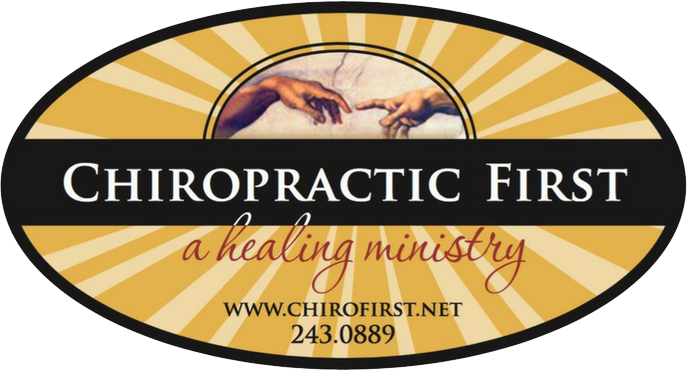Chiropractor for Frozen Shoulder: A Non-Invasive Path to Regaining Shoulder Mobility
Waking up one morning to find your shoulder stiff and painful can be alarming. If you’re experiencing these symptoms, you might be dealing with frozen shoulder, a condition that affects millions of people worldwide.
The good news is that you don’t have to endure months or years of pain and limited mobility. A chiropractor for frozen shoulder can provide gentle, effective treatment that helps restore your shoulder function without surgery or long-term medication use.
What Is Frozen Shoulder?
Frozen shoulder, medically known as adhesive capsulitis, is a condition where the shoulder joint capsule becomes thick, tight, and inflamed. This creates significant stiffness and pain that gradually worsens over time.
Unlike a simple muscle strain or injury, frozen shoulder affects the actual joint capsule that surrounds your shoulder. The capsule becomes inflamed and develops scar tissue, which restricts movement and causes pain. This condition is fundamentally different from other shoulder problems like rotator cuff tears or bursitis.
What Causes Frozen Shoulder and Who’s at Risk?
Understanding what triggers frozen shoulder helps us both treat and prevent this condition more effectively.
Common Causes
Several factors can lead to the development of frozen shoulder:
- Post-injury or post-surgery immobilization is one of the most common triggers.
- Overuse or repetitive strain from activities like painting, swimming, or overhead work can create inflammation that progresses to capsular restriction.
- Inflammatory conditions affecting the joint capsule, such as autoimmune disorders or systemic inflammation, can also trigger the condition.
Risk Factors
Certain factors increase your likelihood of developing frozen shoulder:
- Diabetes significantly increases risk, with studies showing that 10-36% of diabetic patients develop frozen shoulder compared to only 2-5% of the general population.
- Thyroid disorders, particularly hyperthyroidism and hypothyroidism, are strongly associated with frozen shoulder development.
- Gender and age play important roles, as the condition is more common in women and typically affects people between 40-60 years old.
- Previous shoulder injuries or surgeries can predispose you to developing frozen shoulder on the same side.
How Chiropractic Care Helps Frozen Shoulder
Chiropractic treatment offers a comprehensive approach to frozen shoulder that addresses both the symptoms and underlying causes of the condition.
Chiropractic Techniques for Treatment
Shoulder Joint Mobilization and Adjustments We use gentle, specific movements to help restore proper joint mechanics in your shoulder. These techniques help break up adhesions and improve joint mobility without causing additional trauma to inflamed tissues.
Soft Tissue Therapy Multiple soft tissue approaches help address the muscular components of frozen shoulder:
- Active Release Technique (ART) helps break up scar tissue and adhesions
- Myofascial Release addresses restrictions in the connective tissues surrounding your shoulder
- Trigger Point Therapy releases tight knots in muscles that may be contributing to pain and stiffness
Gentle Stretching and Rehabilitation Exercises We teach you specific exercises designed to gradually restore range of motion without aggravating your condition. These exercises are progressed carefully based on your current stage of recovery.
Postural and Thoracic Spine Adjustments Poor posture and thoracic spine restrictions often contribute to shoulder problems. By addressing these areas, we help create optimal conditions for shoulder healing and function.
Additional Therapeutic Modalities We may incorporate other treatments to enhance your recovery:
- Electrical Muscle Stimulation to reduce pain and promote healing
- Cold Laser Therapy to decrease inflammation and accelerate tissue repair
- Kinesio Taping for support and improved proprioception
The Science Behind Chiropractic Relief
The effectiveness of chiropractic care for frozen shoulder isn’t just based on clinical experience – it’s supported by solid scientific principles.
There’s a strong neurological connection between your spine, nervous system, and shoulder mobility. When your thoracic spine isn’t functioning properly, it can affect nerve function to your shoulder region.
Additionally, chiropractic manipulation triggers anti-inflammatory responses in the body, helping reduce the inflammation that contributes to frozen shoulder symptoms.
Benefits of Chiropractic Treatment for Frozen Shoulder
Choosing a chiropractor for frozen shoulder offers several distinct advantages over other treatment approaches:
- Pain Reduction Without Drugs Many patients experience significant pain relief without relying on medications that may have side effects or mask underlying problems.
- Improved Range of Motion Through targeted mobilization and exercise programs, we help restore shoulder movement more quickly than passive waiting.
- Faster Recovery Studies show that patients receiving chiropractic care typically experience faster recovery times compared to those who don’t seek treatment.
- Whole-Body Wellness Our approach addresses not just your shoulder, but contributing factors throughout your body, leading to better overall function and reduced risk of recurrence.
Who Is a Good Candidate for Chiropractic Care?
Most people with frozen shoulder can benefit from chiropractic treatment, but certain patients respond particularly well:
- Recent-Onset Frozen Shoulder Patients in the early stages of frozen shoulder often see the most dramatic improvements with chiropractic care.
- Post-Surgical Recovery Patients Those recovering from shoulder surgery or other procedures that required immobilization can benefit from gentle mobilization and rehabilitation.
- People Seeking Drug-Free Alternatives Patients who prefer to avoid injections, medications, or surgery often find chiropractic care to be an excellent primary treatment option.
Tips to Prevent Frozen Shoulder from Returning
Prevention is always better than treatment. Here are key strategies to reduce your risk of developing frozen shoulder again:
- Daily Stretching and Mobility Exercises Maintain shoulder flexibility with gentle daily movements. Simple exercises like arm circles, wall slides, and cross-body stretches can help maintain joint mobility.
- Proper Posture and Ergonomic Setup Poor posture puts extra stress on your shoulders and can contribute to problems. Ensure your workspace supports good alignment and take regular breaks to move and stretch.
- Blood Sugar Management For diabetic patients, maintaining good blood sugar control significantly reduces the risk of frozen shoulder recurrence.
- Regular Chiropractic Checkups Routine visits to your chiropractor for frozen shoulder can help maintain proper alignment and catch potential problems early, before they become major issues.
Ready to Get Relief from Frozen Shoulder?
Frozen shoulder doesn’t have to control your life for months or years. With the right treatment approach, you can regain your shoulder mobility and return to the activities you love much sooner than you might expect.
At Chiropractic First in Redding, we combine proven chiropractic techniques with personalized care to help you overcome frozen shoulder naturally. Our comprehensive approach addresses not just your symptoms, but the underlying causes that contributed to your condition.
Take action today and start your journey back to full shoulder function. Schedule your evaluation with Dr. Todd Royse at Chiropractic First in Redding, CA, and discover how our gentle, effective treatments can help you regain your shoulder mobility without surgery or long-term medication use.
Frequently Asked Questions
- Can chiropractic make frozen shoulder worse?
When performed by a licensed chiropractor, treatment is very safe. We use gentle techniques specifically designed for frozen shoulder and monitor your progress carefully to ensure you’re improving.
- How many sessions are needed?
The number of treatments varies depending on your specific case and which stage of frozen shoulder you’re in. Most patients see improvement within 4-6 weeks, with continued progress over 3-6 months.
- What should I avoid during recovery?
Avoid activities that cause sharp pain, but gentle movement is encouraged. Don’t favor the affected shoulder completely, as this can worsen stiffness.


